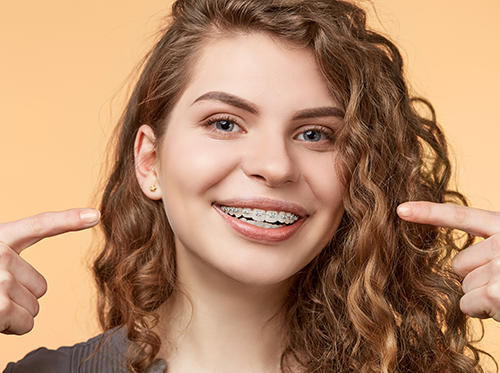October 11th, 2018

We all want to live our healthiest lives. We know that part of keeping ourselves healthy is regular visits to our Vancouver, BC office for checkups and necessary dental work. And that dental work might require an X-ray. Should the amount of radiation in an X-ray concern us?
First, it is helpful to know that the radiation you are exposed to from a dental X-ray is very small. A set of most bitewing X-rays, for example, produces an amount of exposure about equal to the amount of background radiation we get from our normal surroundings in a typical day. We also take care to minimize your exposure even further by using specially designed equipment and protective shielding, and taking only necessary X-rays. If your child is very young, if you are pregnant, or if you have other health concerns, talk to us about the advisability of X-rays and whether they are essential to treatment.
Second, much of our careful general examination will be done visually. Dr. Daniel Ma can check for cavities and other problems and assess tooth and gum health. But sometimes, there are conditions which can’t be detected without an X-ray.
- Decay that isn’t visible in an oral exam—if a small cavity develops between teeth, or is hidden underneath a filling, an X-ray will catch it before more damage can take place.
- Infection—An X-ray will reveal infections such as abscesses that can damage both bone and tooth, and gum disease that has harmed bone and connective tissue.
- Orthodontic and periodontal issues—We might need an X-ray to determine the spacing and development of your child’s incoming teeth and maturing jaw structure, to properly create braces for adults or children, or to place an implant within the jawbone.
- If you are a new patient, it is helpful to have complete X-rays taken as a baseline of your current dental health and previous dental work. This baseline allows us to track tooth and jaw development, if necessary, and to evaluate any future changes that might be a concern. (If you have had X-rays taken in another office, we can help you have them transferred so we have a background of your dental history.)
Even though the radiation from a dental X-ray is minimal, be assured that we will never request any unnecessary procedure. When we recommend an X-ray, we do so to make sure there is no decay or infection threatening the health of your gums and teeth, and that we have the essential knowledge we need to treat any dental, periodontal, or orthodontic condition. Because we all want to live our healthiest lives—and part of that healthy life is both active and proactive dental care.
August 1st, 2018

According to the Canadian Association of Orthodontists, orthodontic treatment for children should start at around age seven. Dr. Daniel Ma can evaluate your child’s orthodontic needs early on to see if orthodontic treatment is recommended for your son or daughter.
Below, we answer common questions parents may have about the benefits of early childhood orthodontics.
What does early orthodontic treatment mean?
Early orthodontic treatment usually begins when a child is eight or nine years old. Typically known as Phase One, the goal here is to correct bite problems such as an underbite, as well as guide the jaw’s growth pattern. This phase also helps make room in the mouth for teeth to grow properly, with the aim of preventing teeth crowding and extractions later on.
Does your child need early orthodontic treatment?
The characteristics and behavior below can help determine whether your little one needs early treatment.
- Early loss of baby teeth (before age five)
- Late loss of baby teeth (after age five or six)
- The child’s teeth do not meet properly or at all
- The child is a mouth breather
- Front teeth are crowded (you won’t see this until the child is about seven or eight)
- Protruding teeth, typically in the front
- Biting or chewing difficulties
- A speech impediment
- The jaw shifts when the child opens or closes the mouth
- The child is older than five years and still sucks a thumb
What are the benefits of seeking orthodontic treatment early?
Jaw bones do not harden until children reach their late teens. Because children’s bones are still pliable, corrective procedures such as braces are easier and often faster than they would be for adults.
Early treatment at our Vancouver, BC office can enable your child to avoid lengthy procedures, extraction, and surgery in adulthood. Talk with Dr. Daniel Ma today to see if your child should receive early orthodontic treatment.
July 25th, 2018

When you start wearing braces, it can become a challenge to clean certain areas of your mouth. If these areas are neglected for long periods of time, though, decay and stains can form on your teeth.
Your mouth will require extra attention while you have your braces on. This can include using a special toothbrush to reach those spots, flossing every day, getting fluoride treatments, avoiding certain foods, and making sure to visit your dentist. Let’s take a closer look at what you can do to prevent decay during treatment.
When you get your braces on, Dr. Daniel Ma will give you an interdental toothbrush that can be used to get to those hard-to-reach spots in your mouth. The brush has bristles that can easily remove food residue stuck between the wires in your mouth. We may also suggest using a WaterPik, which pulses a pressurized stream of water to remove excess food particles.
Brushing and flossing every day should always be a part of your oral health regimen, but this becomes especially crucial when you have braces. If food gets stuck between braces and sits on your teeth, decay and staining will start to occur. Dr. Daniel Ma and our team recommend flossing at least once a day, and brushing and using mouthwash after every meal as long as you have braces.
If you don’t have the time, make sure at least to swish your mouth really well with water after you eat. It’s especially important to follow these steps after consuming sugary foods or beverages. It’s best to avoid sweets altogether when you have braces.
Making sure to visit your dentist at least twice a year for a routine cleaning can also help to prevent any decay from damaging your teeth while your teeth are encased in braces. Your dentist will remove any plaque or tartar that’s built up since your last cleaning.
Prevention is key when it comes to keeping your mouth healthy during orthodontic care with braces. Follow these tips and you’ll keep your teeth beautiful and healthy for the day your new smile is finally revealed!
July 18th, 2018

If you’re thinking about investing in braces, there are a few things you should take into consideration. It’s normal for adult teeth to come in crooked, which is why braces are a common solution for teens and adults who desire a beautiful smile.
Your dentist may recommend orthodontic treatment if crooked teeth begin to affect your or your child’s oral health. But many factors go into whether braces would be right for you or your child, or not.
Modern orthodontic treatments offer numerous options for the typical issues people face, such as crooked teeth or jaw alignment problems. Malocclusion, otherwise known as having a bad bite, is common in patients with crooked teeth.
Braces can be worn for a short period of time to correct uneven jaw alignment, which may be the cause of an underbite or overbite in patients. A retainer is worn afterward to keep the newly straightened teeth in place.
Now that one in five braces wearers is an adult, grownups have a variety of braces options. Braces are typically left on for at least one year to straighten teeth effectively. Options can include regular metal braces, clear braces, or Invisalign® aligners.
If you’re an adult and would prefer a discreet treatment, clear braces or Invisalign retainers are your best options. Dr. Daniel Ma will be able to provide you with a recommended best route of treatment depending on what you’re trying to accomplish and what your budget is. Before getting braces, it’s worth learning about all the methods of treatment available at our office.
Be sure to contact your insurance company before your appointment to see if orthodontic treatments are covered; otherwise, you may want to plan to pay for out-of-pocket costs. If you have questions regarding the types of treatment we provide for our patients, call our Vancouver, BC office for more information.





 Website Powered by Sesame 24-7™
Website Powered by Sesame 24-7™